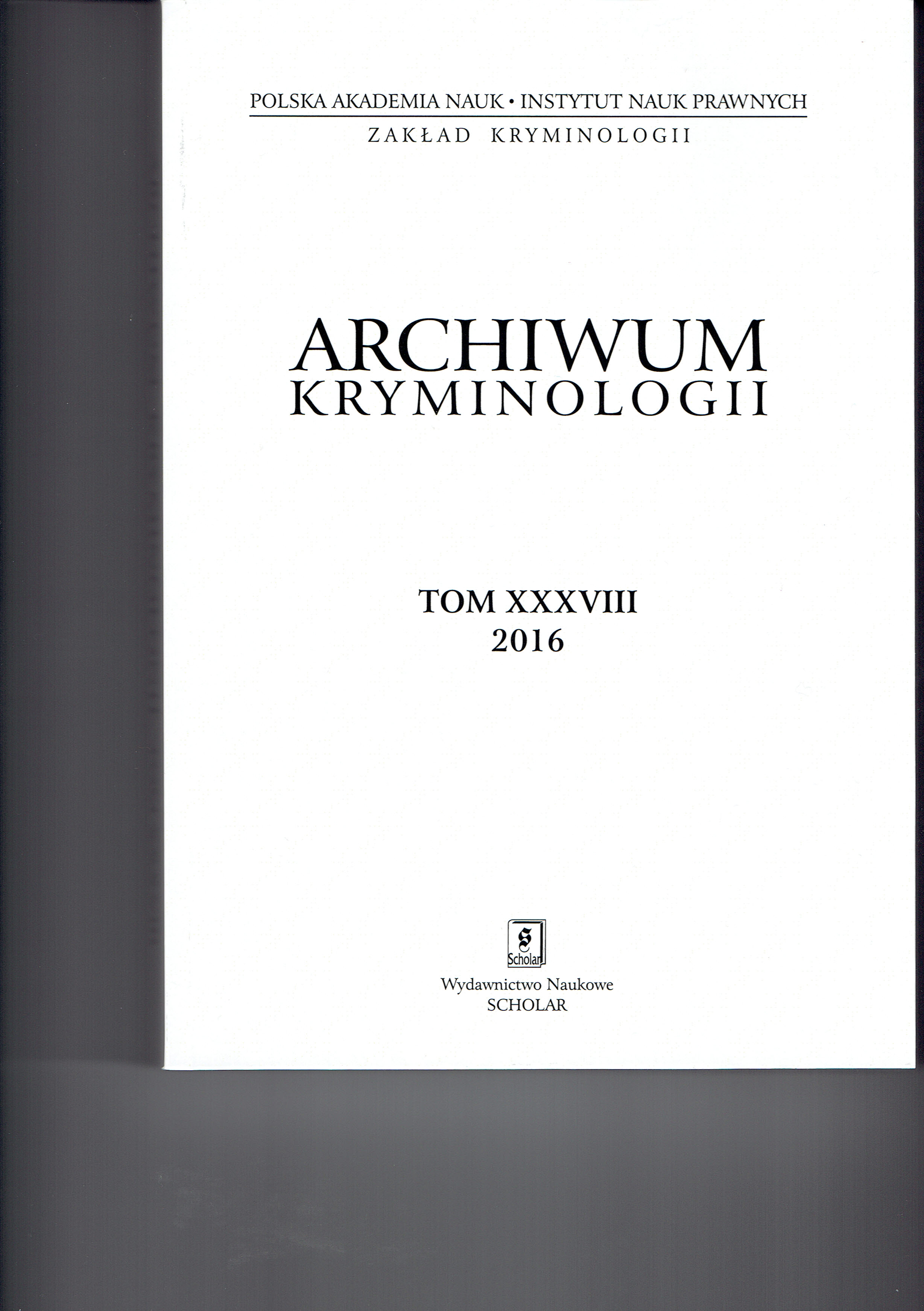Analiza systemu zapobiegania i zwalczania przestępczości granicznej
Review of the Border Crime Prevention and Combating System
Author(s): Magdalena PerkowskaSubject(s): Law, Constitution, Jurisprudence, Criminal Law
Published by: Instytut Nauk Prawnych PAN
Keywords: zapobieganie przestępczości granicznej; zwalczanie przestępczości granicznej; przestępczość graniczna;kryminologia;
Summary/Abstract: The paper aims to review the legal solutions, mainly within the statutory powers of the Border Guard (BG) services, meant to ensure an efficient system of combating and preventing border crime. Statutory powers and prerogatives vested in the Border Guard service are deemed sufficient in terms of implementing its statutory objectives. It is important that in dealing with illegal immigration BG officers have the right to carry out operational reconnaissance and a range of monitoring tasks. BG officers also regard their scope of statutory prerogatives as sufficient, which was corroborated by their opinions voiced during the interviews. The interviewees, officers on duty on both the Polish internal section of the EU border and the external EU border section, carrying out the actual checks at the border checkpoints, as well as serving in the operational and investigative division indicated that their present powers and prerogatives are sufficient and allow them to conduct the preliminary investigative proceedings effectively, as well as collect pertinent material evidence as needed. The author advocates establishing a special border checks regime at the Polish- -Lithuanian border, pursuant to the concept of EU border protection, as implied by the provisions of Article 67, Section 3, of the Treaty on the Functioning of the European Union, envisaging that the European Union shall endeavour to ensure a high level of security through appropriate crime-prevention measures, since Lithuania’s external borders appear to be insufficiently secured. In line with the concept of a bolishing internal border checks, most of the financial resources, including those originating in the aid funds designed to facilitate border security and prevent illegal migration, are allocated to the external borders. As far as the border section with Lithuania is concerned, more direct financial support should be allocated down there, with a view to facilitating the use of the latest technologies in the area of law enforcement and combating border crime beyond the border crossing itself. Besides, the appraisal of the situation on this section of the border, due to its particular status, leads to the conclusion that it would be prudent to collect statistical data on border crime along the Polish section of the EU inner border, whilst operationally dividing its length into the sections bordering with the respective EU countries. This would effectively reveal the scale and the actual dynamics of border crime along these sections, as well as facilitate preventing it more effectively. In view of the extensive use being routinely made of numerous documents like an invitation to trade cooperation, an invitation to a cultural event, etc. in order to obtain the Schengen visas, whereas in fact the true the purpose of entering the country is purely commercial, or for outright smuggling purposes, it might be prudent to consider issuing the singleentry visas. Since the ostensible purpose of a foreign national’s entry into the Schengen area, in conformity with his/her own declaration, is to attend a single cultural event or a single meeting, it is totally unjustified to grant him the permit to cross the border and stay abroad for 90 days within a half-year period. This would effectively allow to at least partially eliminate obtaining visas for other purposes than the declared ones. The introduction of the VIS system for the citizens of Russia, Belarus, and Ukraine might well be deemed a success. The system will facilitate eliminating the practice of having one’s personal data altered and applying for brand new documents and brand new visas for persons already covered by a temporary ban on entry into Poland, as provided by Article 318 of the Foreign Nationals Act. In the author’s view, Poland should not yield under the barrage of complaints expressed by the visitors and continue to collect fingerprints upon the issuance of visas, and when crossing the state border. This facilitates the detection of offenders making use of the ‘look-alike’ method when passing through a border checkpoint and producing another person’s ID. The VIS system makes an essential contribution to combating illegal migration effectively.
Journal: Archiwum Kryminologii
- Issue Year: 2016
- Issue No: XXXVIII
- Page Range: 93-111
- Page Count: 19
- Language: Polish

